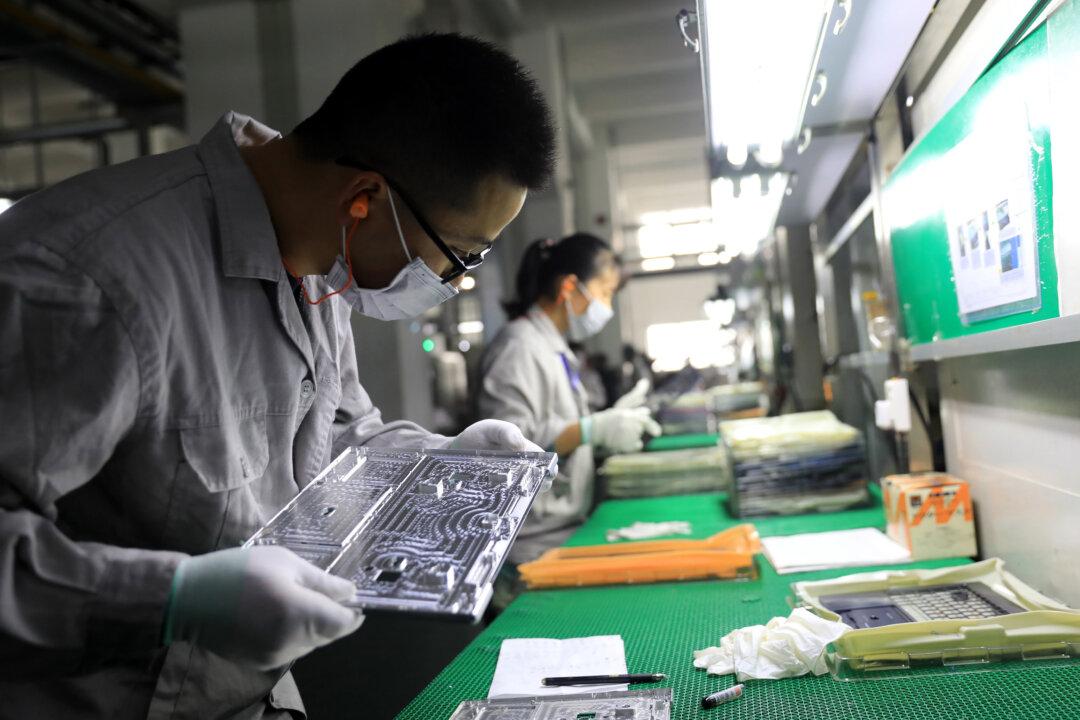
Workers check laptop parts inside a factory in Lu'an City, Anhui Province, China, on November 19, 2018. STR/AFP via Getty Images
Investors are casting doubt about the financial health of one of China’s most strategically important technology companies.
Tsinghua Unigroup Co., the company spearheading China’s developing microchip business, has seen the price of its dollar-denominated debt crater.





